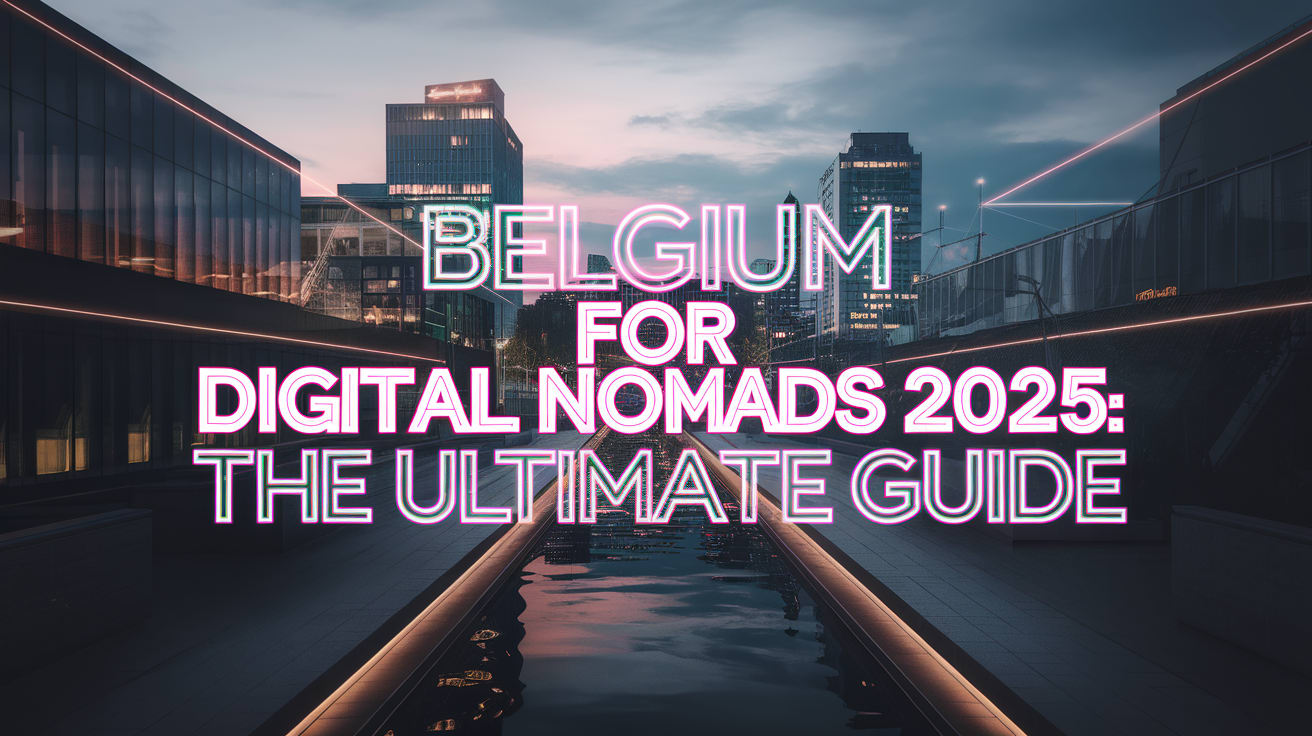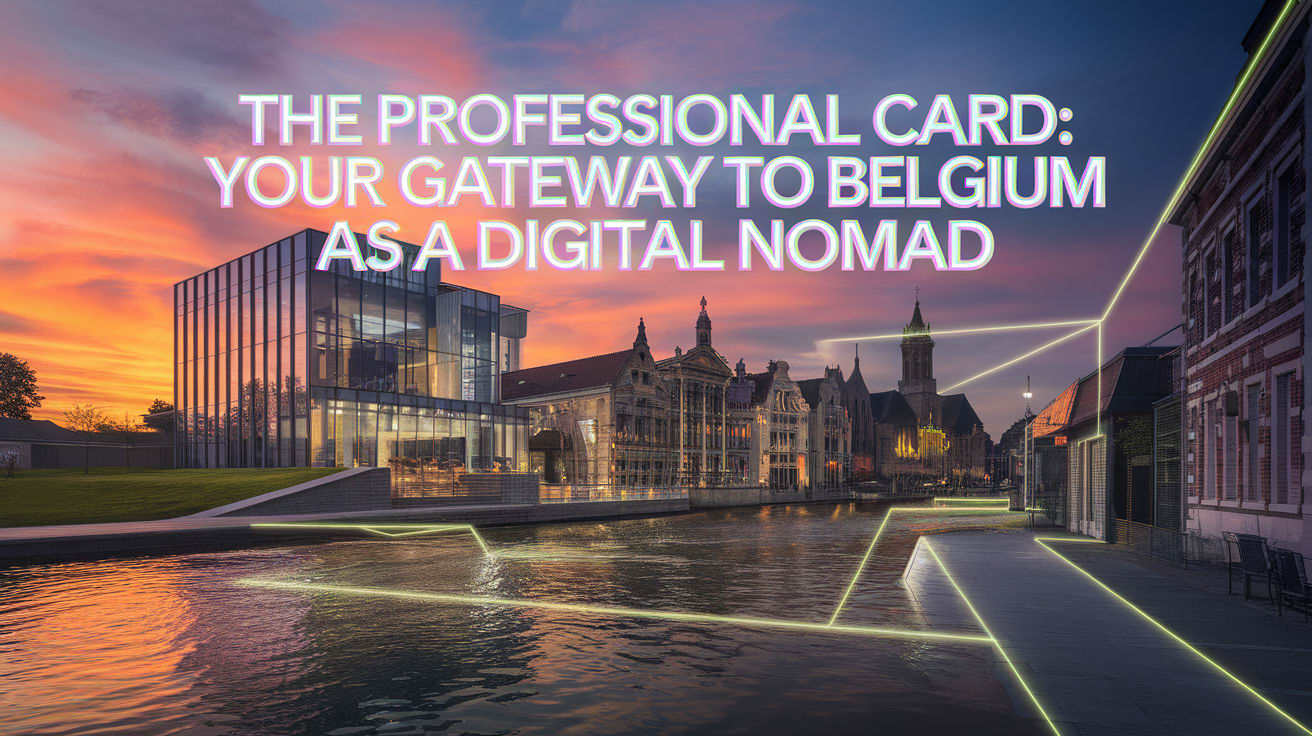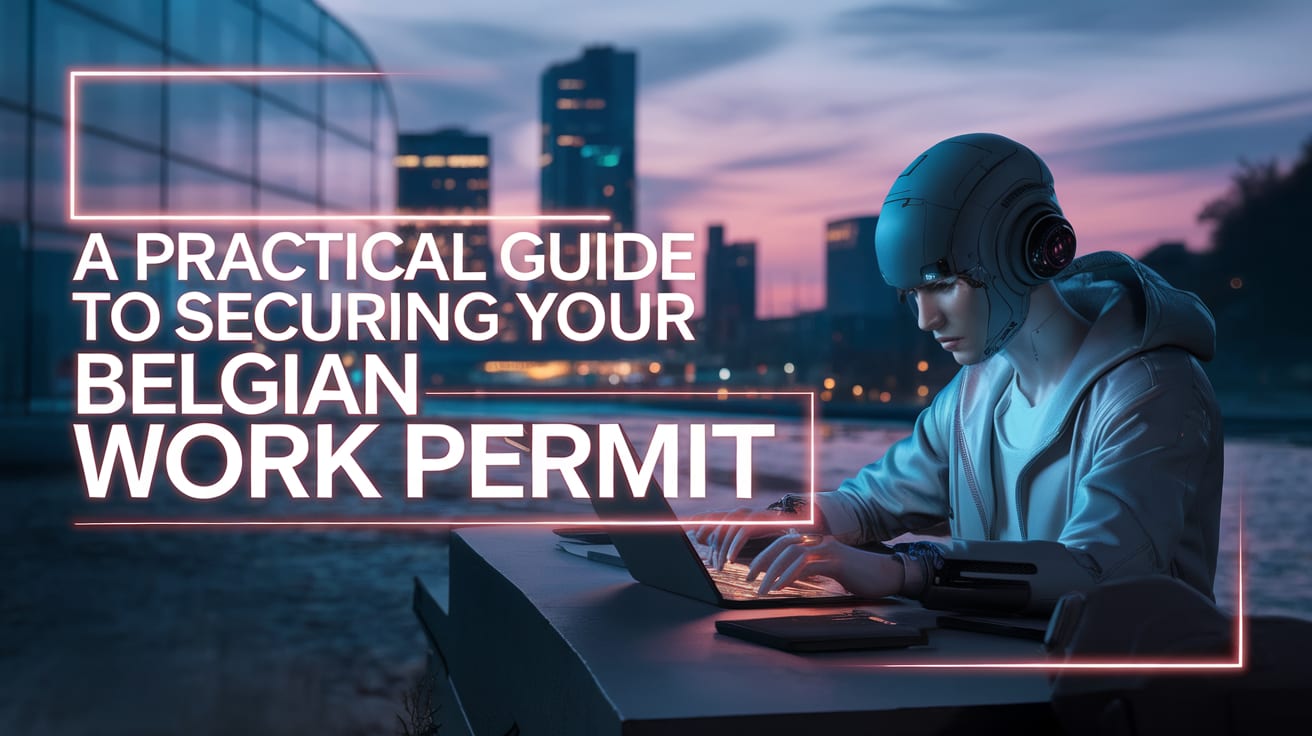Belgium Digital Nomad Visa 2025
According to Wikipedia, Belgium's position as a founding member of the European Union and host to the EU's headquarters has long cemented its reputation as a g...

Belgium for Digital Nomads 2025: The Ultimate Guide
Authority Insight: We grounded this article in guidance from Wikipedia and Bbc so every recommendation reflects the latest policy and on-the-ground expertise for Belgium Digital Nomad Visa 2025.
According to Wikipedia, Belgium's position as a founding member of the European Union and host to the EU's headquarters has long cemented its reputation as a global center for diplomacy and international business. But while countries like Portugal and Spain have rolled out the red carpet for remote workers with shiny new "digital nomad visas," Belgium has remained quietly traditional. This might lead you to believe the heart of Europe is off-limits for your freelance career. However, that assumption could cause you to miss out on one of the continent's most strategic, well-connected, and culturally rich home bases. The secret isn't a new visa; it's a well-established pathway that thousands of self-employed professionals have used for years.

Your Gateway to Europe: Understanding Belgium's Approach
As we head into 2025, the key thing to understand is that Belgium does not have an official "Digital Nomad Visa." A search for this term will lead you to a dead end. Instead, the country offers a robust and legitimate route for non-EU/EEA freelancers and entrepreneurs through its Professional Card (Carte Professionnelle / Beroepskaart). This isn't a trendy, new-age visa; it's Belgium’s long-standing permit for any foreigner wishing to engage in self-employed activities on its soil.
This guide is for you if you're a non-EU citizen—a software developer, a marketing consultant, a graphic designer, or any other professional who works for yourself—and you're looking for a stable, long-term base in Europe. While platforms like Nomad List might show trendier hotspots, Belgium offers a unique combination of high living standards, central location, and a formal residency path that can lead to long-term stability. The process is more involved than a simple online application, but the reward is a legitimate work and residence permit in a country that serves as a launchpad to the entire continent. While there are reports that Belgium is exploring a more formal digital nomad program for 2025-2026, the Professional Card remains the definitive and official route for now.
What You'll Learn in This Guide
Navigating Belgian bureaucracy can feel intimidating, but this guide breaks it down into clear, actionable steps. We will demystify the process and provide the clarity you need to make your move. By the end, you will have a comprehensive understanding of:
- The Professional Card: What it is, who it's for, and why it's your key to living and working in Belgium.
- Step-by-Step Application: A detailed walkthrough of applying for the Professional Card and the subsequent Long-Stay (Type D) visa from your home country.
- Core Requirements: A complete checklist of documents you'll need, from your business plan and client contracts to the required medical certificate and proof of funds.
- Costs and Timelines: A realistic breakdown of the application fees (around €320 total) and processing times, which can take up to four months.
- Life in Belgium: What to expect after you arrive, including registering with the local municipality and setting up your freelance business. Similar to the Germany Digital Nomad Visa 2025: Complete, this visa offers competitive benefits.
Why Belgium Uses the Professional Card (And What It Means for You)
Belgium's reliance on the Professional Card instead of a dedicated digital nomad visa stems from its structured and regulated approach to immigration and labor. The Belgian government wants to ensure that anyone working within its borders, even for foreign clients, is properly registered and contributing to the system. This framework was designed for traditional entrepreneurs and freelancers long before the term "digital nomad" became mainstream.
So, what is the core difference? A typical digital nomad visa often just requires proof of foreign income. Belgium's Professional Card, however, requires you to demonstrate the value and viability of your professional activity. The application is reviewed by the regional economic authorities (Flanders, Wallonia, or Brussels-Capital), who assess your project's economic benefit, your qualifications, and your business plan. It’s a work permit for the self-employed.
This means you must think of yourself not just as a remote worker, but as an independent entrepreneur establishing a base in Belgium. Once your Professional Card application is approved, that approval becomes the cornerstone of your application for a Long-Stay D-Visa at the Belgian embassy or consulate in your country of residence. These two components—the Professional Card and the D-Visa—are inseparable for this pathway. As confirmed by the official Belgian Immigration Office, the D-Visa application cannot proceed without prior approval of the Professional Card.
This two-part process forms the foundation of your application. Let's break down exactly what you'll need to secure the first and most crucial component: the Professional Card.
The Professional Card: Your Gateway to Belgium as a Digital Nomad

While Belgium hasn't rolled out a visa with "Digital Nomad" in the title, it offers a robust and established pathway for non-EU freelancers and self-employed individuals: the Professional Card (known as Carte Professionnelle in French or Beroepskaart in Dutch). Think of this as your work permit. Once you have approval for the Professional Card, you can apply for the long-stay (Type D) visa that allows you to live in the country.
Eligibility and Document Requirements
To successfully apply, you need to prove your professional project is viable and that you can support yourself. The Belgian government wants to see that you will contribute to the economy without becoming a financial burden. Here’s a detailed checklist of what you'll need to gather. If you're considering other European destinations, check out the Netherlands Digital Nomad Visa 2025: The Complete Guide (Why It Doesn't Exist & Better Alternatives).
Document Checklist:
- Completed Professional Card Application Form: You will need to submit two original, signed copies of this form.
- International Passport: Must be valid for the entire duration of your intended stay. Include two photocopies of the main pages.
- Proof of Professional Competence: This is crucial. You need to demonstrate your skills and experience.
- Your university diploma or professional qualifications.
- A detailed CV or resume.
- A portfolio of your work or letters of recommendation from past clients.
- Comprehensive Business Plan: This should outline your freelance activities, target market in Belgium (or internationally), financial projections, and how your work will benefit the Belgian economy.
- Client Contracts & Letters of Intent: Signed contracts or letters from current or future clients are powerful evidence of a sustainable business.
- Proof of Business Registration (if applicable): If you have a registered company in your home country, include the official documents.
- Certificate of Good Conduct: A national criminal record check from your country of residence, typically issued within the last six months.
- Medical Certificate: This must be completed by a doctor approved by the local Belgian embassy or consulate. The form is standardized and confirms you have no diseases that could endanger public health. You can usually find a list of approved physicians on your local Belgian embassy's website.
- Proof of Health Insurance: A comprehensive policy that covers medical expenses, hospitalization, and repatriation in Belgium and the Schengen Area.
- Proof of Accommodation: A rental agreement or letter of invitation from someone in Belgium.
Financial and Time Requirements
- Income Requirement: Belgium has no official minimum income threshold. Instead, you must demonstrate "sufficient means of subsistence." Your business plan, client contracts, and bank statements will be used to assess this. As a practical guideline, aim to show a stable income that is well above the Belgian minimum wage and sufficient savings to cover your initial months in the country.
- Application Fees: Expect to pay two main fees:
- €140 for the Professional Card application.
- €180 for the Long-Stay (Type D) visa application.
- Processing Time: Patience is key. The entire process, from submitting your Professional Card application to receiving your D-visa, takes approximately 120 days (4 months).
The Step-by-Step Application Process
Navigating the Belgian bureaucracy can seem daunting, but it's a clear, two-stage process. You must get the Professional Card approved before you can apply for the long-stay visa.
Step 1: Apply for the Professional Card This is the most critical step. You apply for the Professional Card from your home country via the Belgian embassy or consulate. They will forward your application to the competent regional authority in Belgium (Flanders, Wallonia, or the Brussels-Capital Region) depending on where you plan to establish your professional activities. For a similar visa program, see our comprehensive Netherlands Digital Nomad Visa guide.

Successfully navigating this regional choice and preparing a compelling case requires more than just a checklist. To transform your application from a collection of documents into a convincing proposal, it's essential to understand the strategy behind a successful submission.
A Practical Guide to Securing Your Belgian Work Permit

Navigating any country's bureaucracy can be daunting. This section breaks down the application process for the Professional Card into actionable steps, expert tips, and real-world scenarios to demystify the journey and increase your chances of success.
Expert Tips & Best Practices
While the process is straightforward, the devil is in the details. The quality of your application, specifically your business plan, is the single most important factor.
Think Regionally, Act Locally: Your Professional Card application is processed by the regional government where you plan to base your activities: Flanders, Wallonia, or the Brussels-Capital Region. Each has slightly different economic priorities. Research which region best aligns with your professional field. For instance, Brussels is a hub for tech and international organizations, while Flanders has a strong logistics and creative sector. Tailor your business plan to demonstrate how your work will add value to that specific region's economy.
The Business Plan is Your Golden Ticket: This isn't just a formality. Your business plan must be comprehensive and convincing. It should clearly outline your services, target market (especially any Belgian clients), financial projections for at least two years, and marketing strategy. As recent reports from outlets like the BBC highlight, European nations are keen to attract talent that contributes demonstrably to the local economy. Show them you're not just a tourist with a laptop; you're a serious entrepreneur.
Gather Documents in Parallel: The application requires several documents with their own timelines, such as a police clearance certificate and a medical exam. Start gathering these simultaneously to avoid bottlenecks. Use a checklist and don't wait until the last minute. Getting documents apostilled or legalized can take weeks.
Don't Underestimate Financial Proof: While there's no official minimum income, you must prove you can support yourself without relying on public funds. This means showing a healthy savings balance, existing client contracts, or a letter of credit. Aim to show at least €20,000 in savings as a baseline, though more is always better. You can find detailed cost of living data on sites like Numbeo to help build your financial plan. You might also be interested in our guide to the France Digital Nomad Visa.
Real-World Scenarios: Learning from Others
Let's look at two hypothetical applicants to see how these principles work in practice.
Case Study 1: The Successful Strategist (Maria) Maria, a freelance IT consultant from South Africa, wanted to move to Brussels to work with EU-focused startups.
- What she did right: Maria hired a local consultant to help her frame her business plan. She secured two letters of intent from Belgian tech companies expressing interest in her services. Her financial projections were robust, and she emphasized how her skills would directly support the growth of local tech businesses.
Further Reading & Sources
- En.Wikipedia.Org – Digital Nomad
- En.Wikipedia.Org – Travel Visa
- Bbc.Com – News
- En.Wikipedia.Org – Belgium
- Dofi.Ibz.Be – En
- Numbeo.Com – Country Result.Jsp
- Citizenremote.Com – Belgium Digital Nomad Visa
- Expatica.Com – Belgium Visas And Immigration 100069
- Globalcitizensolutions.Com – Digital Nomad Visa Europe
- Freelancermap.Com – Digital Nomad Visa
- 3Aimmigrationservices.Com – The Belgium Self Employed Visa 2025
- Immigration-Belgium.Com – Belgium Digital Nomad Visa
- Deel.Com – How To Get A Visa And Work Permit In Belgium
- Findawayabroad.Com – Digital Nomad Visas Europe
- Unitedstates.Diplomatie.Belgium.Be – National Visa D Visa
- Globalcitizensolutions.Com – Digital Nomad Visa
- Interstride.Com – Top Digital Nomad Visas In Europe 2025
- Etias.Com – Belgium Etias
Final Reminder: Stay compliant with Belgium digital nomad visa 2025 requirements to protect your move.